Life
-
 Health & Medicine
Health & MedicineSpeaking Mandarin may offer kids a musical edge
Scientists have linked a type of musical ability with the knowledge of Mandarin, the primary language of China.
By Dinsa Sachan -
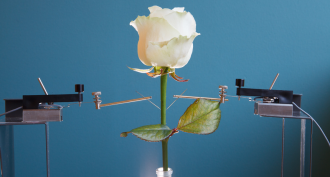 Tech
TechWired and weird: Meet the cyborg plants
By mixing electronics with greenery, engineers have made plants that conduct electricity, detect bombs and send email.
-
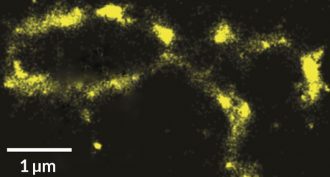 Genetics
GeneticsHow to view tiny parts of DNA? Make them ‘blink’
A new technique can image nanoscale structures in cells without hurting them. No dyes needed. All you have to do is stimulate them with the right color of light.
-
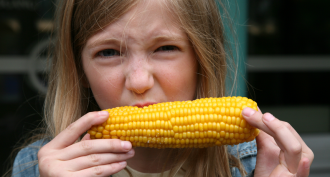 Brain
BrainChewing or breathing sounds make you seethe? Blame your brain
People who can’t stand everyday sounds, such as chewing and breathing. The reason traces to how their brains are wired, new research finds.
-
 Life
LifeHow to make a ‘three-parent’ baby
Scientists combined an egg, sperm and some donor DNA: The end result: what appears to be healthy babies.
-
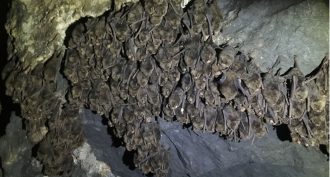 Animals
AnimalsScientists Say: Hibernation
Hibernation is more than a deep sleep. Animals that hibernate lower their body temperature and reduce their body activities for months.
-
 Ecosystems
EcosystemsUnderwater meadows appear to fight ocean germs
The seagrasses that sway in coastal currents are more than aquatic groundcover. They can reduce harmful bacteria that might otherwise sicken neighboring animals, new data show.
-
 Animals
AnimalsUnder blanket of ice, lakes teem with life
Life under frozen lakes is vibrant, complex and surprisingly active, new research finds. In fact, some plants and animals can only live under the ice. But with climate change, will that continue?
-
 Plants
PlantsWarm petals may attract chilly bees
Dark-purple violet petals are warmer than a light-purple variant. And and that warmth might explain their attraction to potentially chilly bees.
-
 Science & Society
Science & SocietyHeartbeat can affect racial perception of threat
Links between nerves in the heart and the brain shed light on why some police may be more likely to shoot an unarmed person who’s black than one who is white.
-
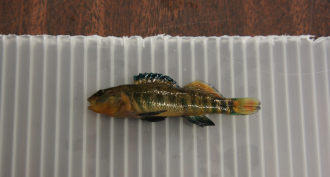 Health & Medicine
Health & MedicineCleaner water helps male fish again look and act like guys
Water pollution can give male fish female traits — such as the ability to make eggs. And that’s not a good thing. Better water treatment may prevent that, data now show.
-
 Health & Medicine
Health & MedicineBullying hurts — but peer support really helps
Bullied kids face more mental illness as adults, new studies find. Other research suggests support from other kids can lessen the impacts.